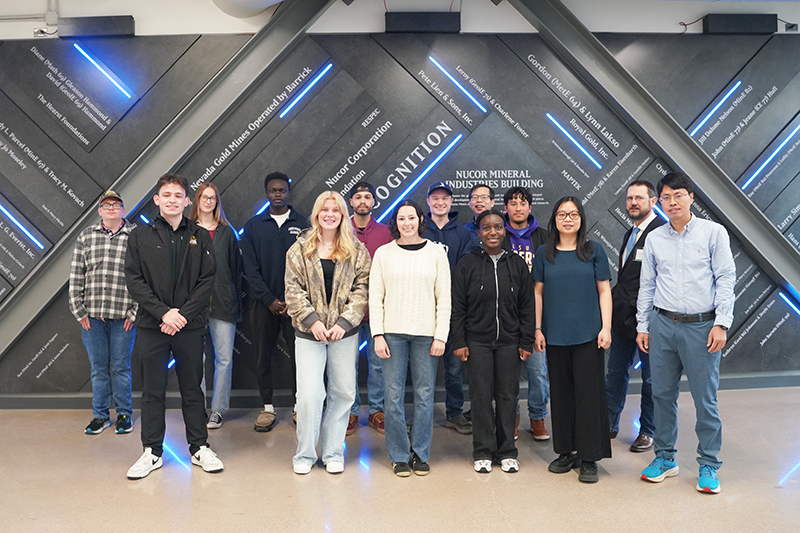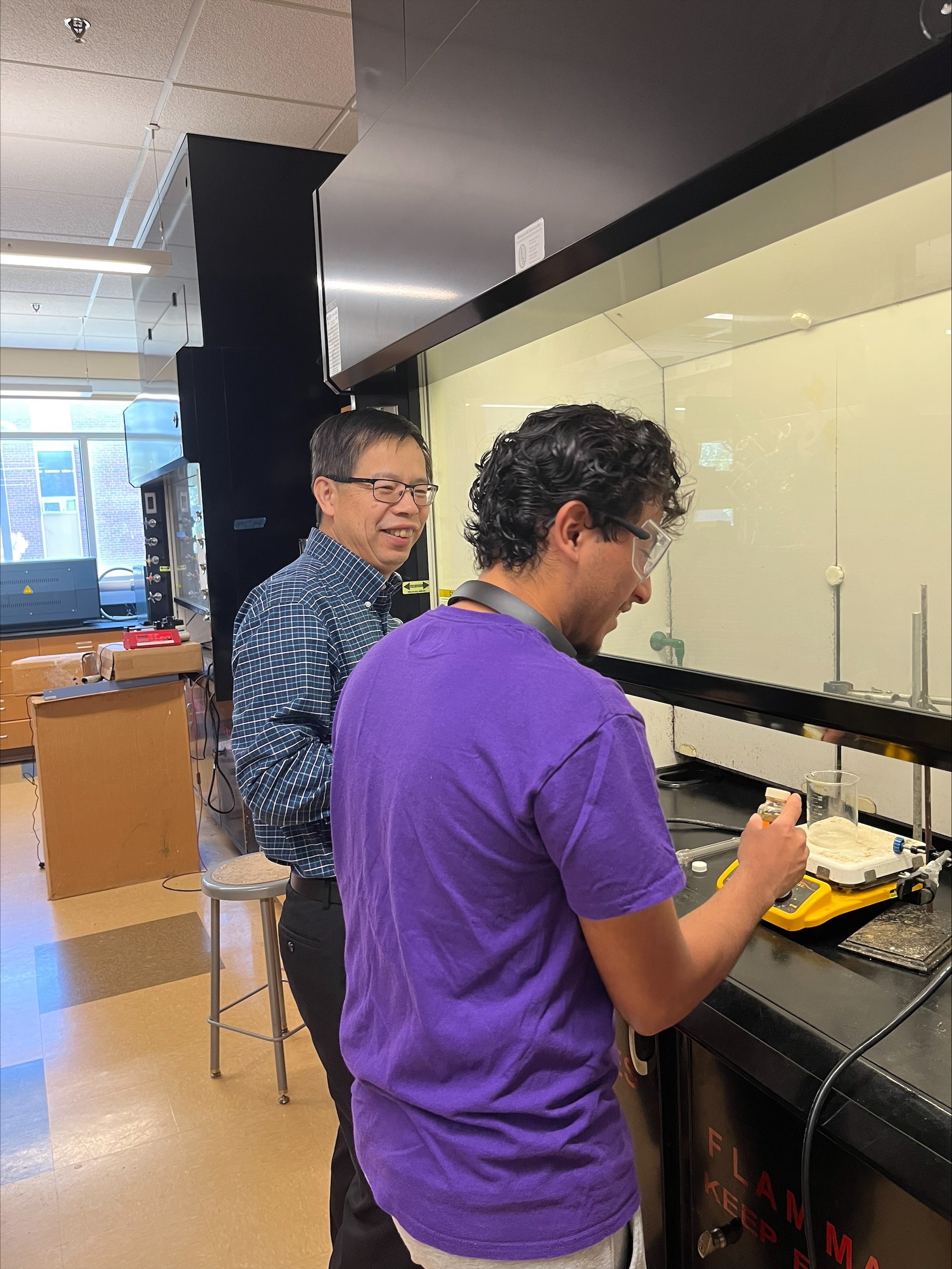New South Dakota Mines Research Program Aims to Tackle Nation’s Lithium Challenges

From electric vehicles and smartphones to medical devices and renewable energy storage,
lithium powers many aspects of daily life. Yet demand for this essential metal far
outpaces the domestic supply—despite significant U.S. reserves, only a fraction is
currently mined.
That’s beginning to change, and South Dakota Mines is helping to lead the charge to reduce America's dependence on foreign sources and increase the workforce surrounding lithium research and technology.
Through a $450,000 National Science Foundation grant, Mines has created the Research Experience for Undergraduate (REU) site: Lithium, Mining, Recycling and Technology (Li-SMART). The three-year grant, funded by the NSF Division of Chemistry and the Established Program to Simulate Competitive Research (EPSCoR), will provide students with interdisciplinary research projects, alongside professional development activities to prepare them for post-graduate work and careers in science and engineering.
“This includes projects in a variety of disciplines on campus including chemistry, biology, mining engineering, geological engineering, electrical engineering, mechanical engineering and chemical engineering,” said Fan Zheng, Ph.D., assistant professor in Mines department of chemistry, biology and health sciences, and principal investigator (PI) for the REU site. “By providing hands-on research training and generating knowledge to advance green and sustainable technologies, the Li-SMART REU site aims to prepare students to tackle global challenges in critical mineral resource security and sustainability while also contributing to a skilled STEM workforce.”
Ten undergraduate students, including participants from across the West and Midwest EPSCoR region, arrived on campus earlier this month and will spend 10 weeks working in labs, collecting water and rock samples in Black Hills, touring the Sanford Underground Research Facility (SURF), and visiting local industry partners.
“While the program focuses on lithium, the new technology developed can be transferred to other critical minerals,” said Liangping Li, Ph.D., Mines associate professor of geology and geological engineering, and Co-PI.